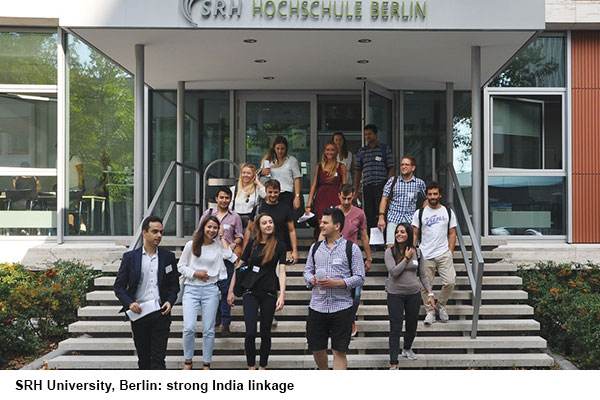
At first glance, Germany might seem an unlikely place for a boom in private, fee-charging universities. Famously, the nation’s public universities are almost free to attend, even for foreign students, and are regarded as consistently decent in quality.
But despite this, an ever greater number of students, German and foreign, are choosing to pay to go private, lured by small class sizes, niche professional courses, plus part-time and evening options for those already in work. A flowering of private campuses countrywide has been the result.
In the 1990s, private universities barely registered in German higher education. In 1997, just one in 100 students attended a private institution, according to the most recent statistics from Germany’s Federal Statistics Office. But since then, “there has been quite an explosion of the private university sector”, says Andrea Frank, a researcher who has tracked the rise of private universities at Stifterverband, a German business-funded education organisation. By 2017, one in 12 students was attending a private institution — close to a quarter of a million in total. There are now 120 private universities across Germany, up from around 50 in the early 2000s.
SRH Hochschule Berlin is one such institution. Founded in 2002 and headquartered among a cluster of other universities in the west of the capital, it now teaches around 1,200 students. The university hopes to move to a new campus, after merging with two other private institutions specialising in art and design.
Around six in 10 of SRH’s students are from within Germany, but relatively recent additions of engineering and computer science Masters courses taught in English have helped draw in students from India, who make up 16 percent of the student body. Overall, private universities are increasing their foreign intake rapidly — up nearly a fifth in 2018 — but are still slightly less international than their public counterparts, according to Wissenschaft Weltoffen 2019, a report from the German Academic Exchange Service.
Because private universities are “much smaller”, the “professor-student relationship is better than in public universities”, says Ms Frank. Dropout rates tend to be much lower, she adds.
Another reason for private universities’ expansion is that they have been “very smart” at carving out “niche” courses that public universities simply do not offer. One such example is Hamburg’s Kuhne Logistics University, explains Piret Lees, a spokeswoman for Germany’s Association of Private Universities. The university was started by the eponymous logistics giant because no other institution was offering sufficiently specialised courses.
How much does all this cost? There are no recent figures on average private fees in Germany, and Lees stresses that costs vary widely depending on course and location. Like UK universities, SRH Berlin charges more for students outside the EU — €10,800 (Rs.8.5 lakh) per year for an engineering Masters — than for EU students, who pay €9,360 (Rs.7.4 lakh).
The majority of private universities are non-profit, according to Ms Frank’s most recent analysis. With more than 1,000 students, private universities are typically financially viable, she estimates, although if they want to do serious research as well as teaching, they need the backing of a foundation behind them.
(Excerpted and adapted from The Economist and Times Higher Education)